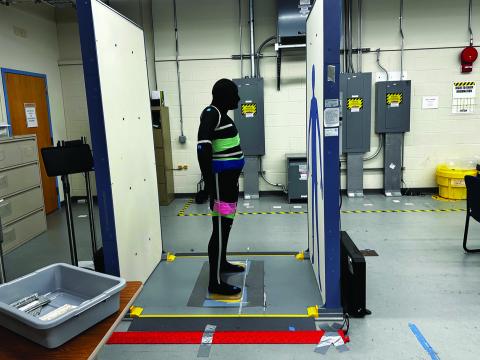Nationwide Broadband Safety Network Seeks Industry Input
Work has begun at the federal level to develop a nationwide dedicated, reliable network, which will provide advanced data communications capabilities to police officers, firefighters and other emergency personnel. The First Responder Network Authority (FirstNet) will enable public safety personnel to make cellular-quality calls and send data, video, images and text—similar to the capabilities offered on commercial networks. Incident commanders and local officials will have priority access and control over the network. Interoperability issues that result from stovepiped local systems, geographic limitations and other regional constraints also will be resolved.
The FirstNet program, which operates under an independent authority within the National Telecommunications and Information Administration (NTIA), has issued an initial set of requests for information (RFIs) and has received more than 270 responses from industry so far. “We are looking for great expertise from vendors,” emphasizes T.J. Kennedy, deputy general manager, FirstNet, NTIA, Department of Commerce. A second set of RFIs will be issued after the existing input is reviewed, but no time frame has been set, he adds.
Currently, the organization’s efforts are task focused. The goal is first to develop a strong outreach team and then bring in the right technology and people working in an atmosphere that will drive innovation into public safety, Kennedy reports. Then the group will transition its efforts to a building focus.
The FirstNet effort will be a stakeholder-oriented process, as it incorporates different needs ranging from individual city police to county fire fighters to emergency medical services and volunteers. Each decision will be based on how it will help police officers, firefighters or paramedics, Kennedy explains. “We cannot do all for all, so we will prioritize by state and region.” The FirstNet state plan will be specific to each state, he adds, and states will need a local radio access network that can connect to the FirstNet core.
Physical and cybersecurity will be part of the network, but Kennedy acknowledges that it is hard to put in a long password when you are driving at high speeds in response to a call. Identity management must be robust, but technologies such as biometrics can help with the human factor.
Initial funding is $7 billion, which will be supported by spectrum sales, but the program is expected to be self-sustaining in the future. The use of FirstNet services and applications will be voluntary. The fees for the services and devices have not yet been set, but the services will be offered at a cost compelling enough that the organization expects to attract millions of public safety users.
Kennedy spoke about the program and how the development process will work to a group of government and industry brought together by the AFCEA Homeland Security Committee. For more information, visit firstnet.gov.




Comments